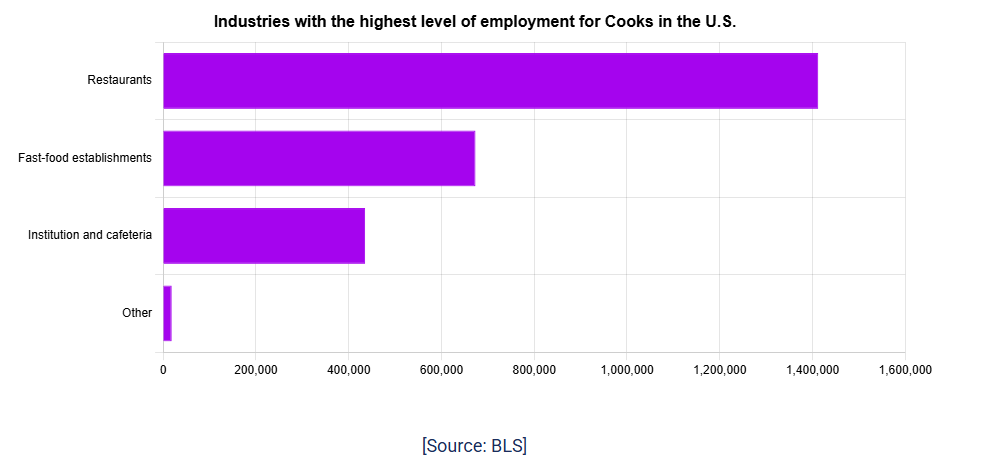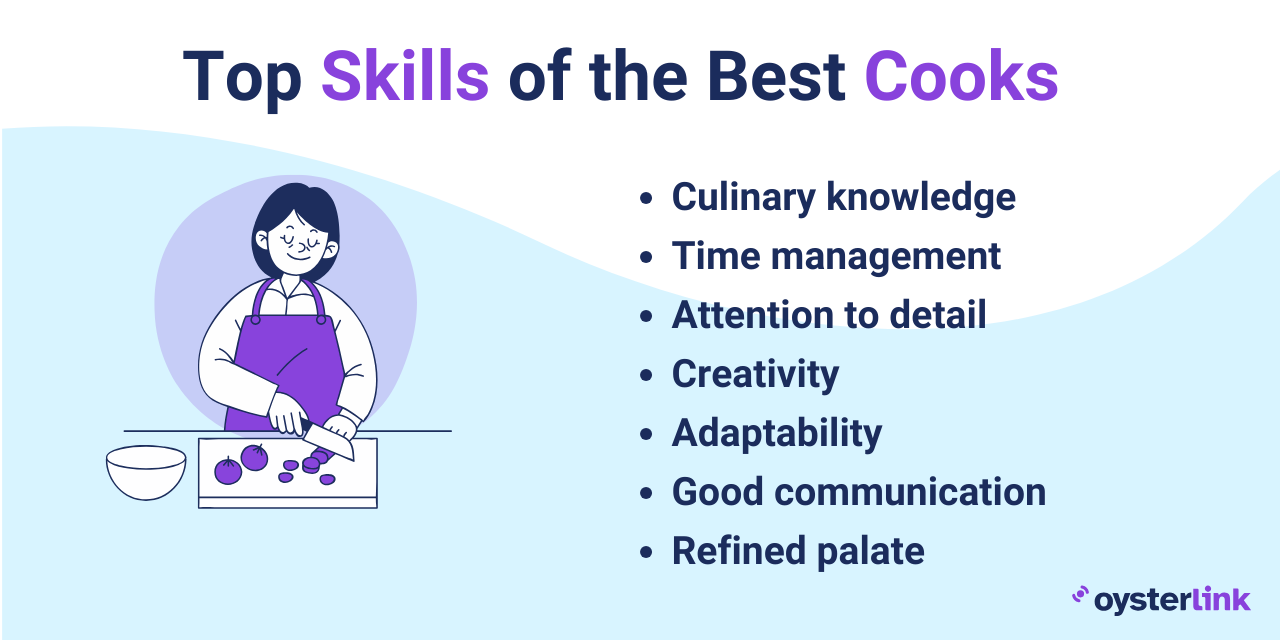Top 40 Cook Interview Questions & Sample Answers
In this guide, you'll find the most commonly asked interview questions for a Cook. To make it easier for recruiters and candidates to navigate through the prompts, we've organized them into two simple categories.
Popular Cook Interview Questions
These Cook interview questions are designed to assess the candidate’s proficiency in culinary techniques, food preparation, and their overall kitchen experience.
Types of Cook Interview Questions
- Key Experience and Skill Cook Interview Questions: Based on a survey by the Occupational Information Network (O*NET), 44% of responders noted that Cooks require a Bachelor’s degree for their role. For you as an employer, this means you want to prioritize candidates with formal educations who already possess culinary expertise. As a result, you'll get to minimize training time and enhance the overall effectiveness of your kitchen.
- Common Situational and Behavioral Cook Interview Questions: Situational and behavioral interview questions present scenarios to assess how a Cook candidate handles challenges in the kitchen, from managing food shortages to dealing with difficult customers, offering valuable insight into their problem-solving skills and suitability for the role.
What Are the Top Cook Interview Questions and Answers?
How To Prepare for a Cook Interview?
According to the Bureau of Labor Statistics (BLS), there are currently 2,666,500 Cooks employed in the United States. The restaurant industry employs the majority, with 1,412,350 cooks, followed by fast-food establishments with 673,490 cooks.

With the growing number of Cook positions available, it's essential to stand out in this competitive field. Here are steps to help you prepare for your cook interview, whether you're a candidate or an interviewer:
As a candidate:
- Thoroughly review the job description to understand the specific requirements and expectations of the Cook position. This enables you to effectively showcase your relevant experience and align your skills with the qualifications sought by your potential employer.
- Practice discussing your cooking techniques, culinary experiences, and creative approaches to food preparation to leave a lasting impression during your interview.. Clear and confident communication during the interview will highlight your professionalism and passion for cooking, leaving a positive impression on the interviewer.
- Research the kitchen or establishment you're interviewing for. Familiarize yourself with their specialty dishes, cooking techniques and target audience. Understanding the company's culinary identity and values will demonstrate your genuine interest in the role and your readiness to contribute to its success.

A recent study shows that 99% of candidates visit a company’s website to learn about their business and values.
As an interviewer:
- Assess the candidate's technical skills by asking targeted questions about their cooking experience, such as their proficiency in various culinary techniques, familiarity with different ingredients and ability to adapt to different cooking methods.
- Find out what is the candidate's approach to recipe development and menu planning to evaluate their creativity and innovation in the kitchen. Ask about any unique dishes they've created and their ability to adapt to changing culinary trends and customer preferences.
- Review the candidate's work samples. Request examples of dishes they've prepared, such as photographs or descriptions. This allows you to visually evaluate the quality of their cooking, including presentation, flavor and overall craftsmanship.
Are Cooks Paid Well?
The compensation for Cooks can vary significantly based on factors like location, type of establishment and experience level.
While Cooks in upscale restaurants and luxury hotels typically earn more, those in entry-level positions at smaller or less prestigious venues may earn less.
Additionally, some Cooks are making additional income through television appearances, cookbook publishing and product endorsements, which can greatly boost their overall earnings.




